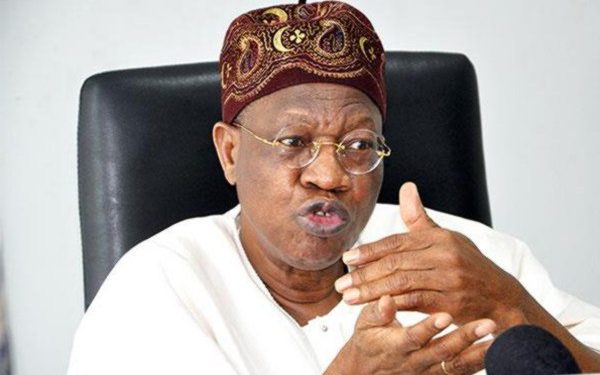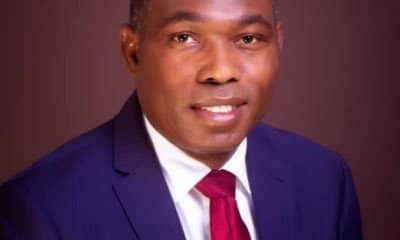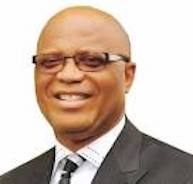BUSINESS
Afreximbank to Support Nigeria’s Digital Switch-over Project

By Joseph Amah, Abuja
The African Export-Import Bank (Afreximbank) says it will put up a financial mechanism to ensure the completion of Nigeria’s Digital Switch Over (DSO) project before the end of the year.
Nigerian news agency (NAN) reports that Afreximbank president, Benedict Oramah, disclosed this in Cairo, Egypt, when Lai Mohammed, Minister of Information and Culture, led a team of DSO stakeholders on bilateral discussions on the project.
In April 2021, the National Broadcasting Commission (NBC) launched free set-top boxes as part of the digital switchover (DSO) in Lagos. The initiative was to enable millions of Nigerians who cannot afford the subscriptions of Pay-TV platforms to enjoy digital television with good content from 60 channels.
Oramah said Afreximbank was impressed by the presentation and will make Nigeria a model for other African countries for DSO project financing.
“The move toward digital television is global, and it was impressive to see the seriousness with which the minister has been pursuing this,” he said.
“I have had several meetings with him in France, Nigeria, and he has come here with a very powerful delegation involving all the stakeholders.
“What we are looking out to do is to work with all the stakeholders, particularly the private sector, to put a financing mechanism in place to ensure that Nigeria saves more than $400 million of subsidy that would have been applied.
“When we are able to do this before the end of the year, the Nigerian government will benefit because we are going to free the spectrum that will be now sold for about two billion dollars to telecommunication companies.
“We assure you that we will put in place the financial structure that will work because we know that if we do it well in Nigeria, other African countries pursuing the same goal will take a cue from there.”
Oramah added that supporting the DSO project would create a platform that would accelerate the growth of Nigeria’s creative industry.
On his part, Mohammed noted that the creative industry is key in the diversification of Nigeria’s economy because, after agriculture, it employs a larger number of people, mostly women and the young population.
IHe said the project would also bridge the digital divide by establishing more equitable access, connecting the unconnected at the underserved and remote communities.
The minister recalled that at the beginning of the programme, the model adopted by the government, which was subsidy driven was not sustainable.
“When the programme started, government subsidised the STB, which was bought from the manufacturers for $30 per box and sold to consumers at $10 per box,” he said.
“Government was also paying the signal distributors and the middleware providers, but the subsidy regime can no longer be sustained.
“Right now, the government is not going to give any financial support again to the project, and that is why we have reengineered and rejigged the programme in a manner that it will be commercially viable.
“Government will only give support to the project in the areas of regulations, advocacy and formulation of policies.
“For instance, we have already amended the Broadcasting Code to protect local manufacturers, advertisers, and channel owners.”
Chairman of STB Manufacturers in Nigeria, Godfrey Ohuabunwa,who presented the credit requirement to the Afreximbank, said they would require a total of $165 million.
According to him, $125 million is expected to fund an initial five million STB from the total of 20 million boxes needed in five years.
He said the signal distributors would require $30 million as well as $10 million for marketing and promotion.
Economy
FCCPC Seals France, Belgium, Italy visa Centers Over Investigation Obstruction, Suspected Unfair Practices

The Federal Competition and Consumer Protection Commission (FCCPC,), has sealed off France, Belgium and Italy visa centres located at the Mukhtar El-Yakub House, Central Business District, Abuja.
The office was sealed with the combined efforts of operatives from the FCCPC, Nigerian Police Force (NPF) and the Nigeria Security and Civil Defence Corps as staff of the centre resisted the sealing.
Sealing off the centre on Thursday, Mrs Boladale Adeyinka, the Director, Surveillance and Investigations Department of FCCPC, said the move was due to failure of the centre to receive a letter of the Commission to investigate a consumer complaint.
Adeyinka said the centre was also sealed due to obstruction of investigation or inquiry and conducting services considered upon reasonable suspicion to be inimical to consumers’ welfare.
She mandated the company to apper before the Commission on June 20, to testify, make depositions and provide evidence in relation to failure to receive a letter of the Commission to investigate a complaint and obstruction of investigation or inquiry.
”This is an enforcement operation against TLS.
”As you are aware, they provide visa support services to Nigerian consumers.
”On the 25th of March 2025, based on consumer complaint, a letter was served on them to address the consumer complaint as is the process of amicable resolution of consumer complaints at the commission.
”The officers of TLS, rather than receive the consumer complaint, proceeded to assault our officers who were conducting the lawful duty of protecting and implementing the provisions of the Federal Competition and Consumer Protection Act (FCCPA).
”Upon receipt of that report, the commission directed that they should be summoned (1:25) to appear before the commission pursuant to Section 33 of the FCCPA.
”Rather than receive the summons of the commission, officers of TLS again on June 17, proceeded not only to assault our officers but also assaulted uniformed officers of the police force who were providing lawful security for the operations of the commission.
”Section 33 stipulates that any person who without sufficient cause fails or refuses to appear before the commission in compliance with a summons commits an offence and is liable on conviction to imprisonment for a term not exceeding three years or fine not exceeding #20 million or both fine and imprisonment,” she said.
Adeyinka directed that the Company would be liable for all losses and expenses encountered by visa applicants as a result of the enforcement.
However, the Management of the Company refused to comment on the matter.
The centre is being managed by TLS Contact, a Teleperformance Company. (NAN)
InfoTech
FIFA Hides More than 10 million Hate Posts, Comments

Football’s ruling body FIFA on Thursday said that it has hidden more than 10 million abusive comments in its fight against hate speech.
FIFA said it has analysed some 33 million posts and comments on 15,302 accounts since it launched its Social Media Protection Service (SMPS) at the 2022 World Cup, and made it available to all its members and players in 2024.
It said that SMPS has been used at 23 tournaments as well as in qualifying and friendly matches.
It is also available at the current Club World Cup for the 32 teams and 2,019 accounts of players, coaches and officials.
FIFA said it is using Artificial Intelligence (AI) to filter abusive posts and hide them from the account owners.
A FIFA survey has revealed that women’s players are more subjected to abuse than the men. (dpa/NAN)
Economy
CBN Takes Steps to Strengthen Banking Sector, Issues Routine Transitional Guidance

The Central Bank of Nigeria (CBN), has introduced time-bound measures for some banks still completing their transition from the temporary regulatory support provided in response to the economic impact of the COVID-19 pandemic.
According to a statement issued by Mrs Hakama Sidi-Ali, , CBN’s Acting Director, Corporate Communications Department , this is part of its ongoing efforts to strengthen the banking system.
Sidi-Ali said that the step was part of the CBN’s broader, sequenced strategy to implement the
recapitalisation programme announced in 2023.
She said that the programme, designed to align
with Nigeria’s long-term growth ambitions, had already led to significant capital inflows and balance sheet strengthening across the sector.
“Most banks have either completed or are on track to meet the new capital requirements well before the final implementation deadline of March 31, 2026.
“The measures apply only to a limited number of banks. These include temporary restrictions on capital distributions, such as dividends and bonuses to support retention of internally generated funds and bolster capital adequacy.
“All affected banks have been formally notified and remain under close supervisory engagement ” she said.
She said that to support a smooth transition, the CBN had allowed limited, time-bound flexibility
within the capital framework, consistent with international regulatory norms.
“Nigeria generally maintains Risk-Based Capital requirements that are significantly more stringent than the global Basel III minimums.
“These adjustments reflect a well-established supervisory process consistent with global norms. Regulators in the U.S., Europe, and other major markets have implemented similar transitional measures as part of post-crisis reform efforts.
“The CBN remains fully committed to continuous engagement with stakeholders throughout this period via the Bankers’ Committee, the Body of Bank CEOs, and other industry forums,” she said.
She said that the goal to ensure a transparent, Nigeria’s banking sector remained fundamentally strong.
According to her, these measures are neither
unusual nor cause for concern.
She said that they were a continuation of the orderly and deliberate implementation of reforms already underway.
She said that the CBN would continue to take all
necessary actions to safeguard the sector’s stability and ensure a robust, resilient financial ecosystem that supports sustainable economic growth. (NAN)





















